For many years, Northern Ireland’s (NI) energy policy was the envy of farmers in the Republic of Ireland (ROI).
The economic opportunities presented to farmers in NI over the decades led to the development of hundreds of farm-scale wind turbines, anaerobic digestion plants, hydro-turbines and biomass boilers.
However, it appears as though that momentum has ground to a halt, both in terms of farm-scale and large-scale commercial renewable projects.
From 2008 to 2018, NI’s wind and solar capacity typically showed double or triple-digit growth rates, with a Compound Annual Growth Rate (CAGR) of 20.13% for wind and 94.22% for solar.
Following the closure of the Northern Ireland Renewables Obligation scheme and the final projects, which availed of the scheme becoming operational in 2018, the growth rates have plummeted to a CAGR of 1.66% and 2.25% respectively.
In several years throughout this period, annual growth has been less than 1%.
Over the past 12 months alone, NI has added only around 30MW of new renewable energy capacity to the system. For context, ROI managed to connect more than 20 times this volume over the same 12-month period, connecting 688MW across 23 assets.
A new report by the industry body RenewableNI shows that NI will face challenges in attracting new investment and meeting its 80% renewable electricity target for 2030 without significant reforms.
The report not only highlights the reasons behind the stagnation of renewable development in NI, but also provides solutions to regain momentum.
What is needed?
According to system operators EirGrid and SONI, NI will need to develop 3,550 MW of renewable generation capacity by 2030 in order to deliver the target of 80% renewables.
The NI market has a known pipeline of 3,461MW of renewable projects, with projects ranging from the pre-planning stage to fully consented assets, which in theory could meet NI’s required demand.
However, by assuming current permitting and grid timelines, and being realistic with expectations, RenewableNI believes a best-case outcome will see 725MW of this pipeline begin generating by 2030, falling well short of the target.
Grid challenges
Grid connection costs and timelines are making renewable projects economically viable, according to the report. The lack of investment in grid infrastructure over the past decade has strained the current system in NI, which is a large part of the problem.
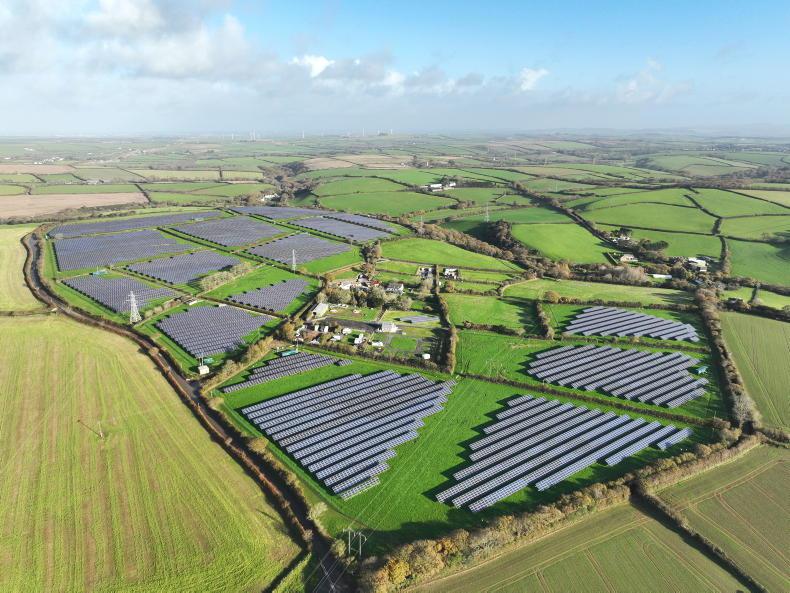
Little progress is being made on renewables in NI.
Furthermore, the need for planning permission before grid applications can be made only slows things down further.
For example, one stakeholder in Britain, who contributed to the report, said that they cannot understand why there has to be so much money spent on planning, studies, etc, before grid connection offer.
Planning challenges
Long wait times and a lack of decision transparency are having a substantial effect on the planning and development of renewable projects. Decision timelines range from six months to the current average of three years, exceeding legal targets.
Similar to ROI, inconsistencies arise across councils, with individual planners and councils making differing decisions on similar applications, with little oversight over these decisions.
Route to market
The lack of a support scheme leaves renewables in NI without a primary market pathway, making ROI and GB, with their government-backed support schemes, more appealing to investors.
The absence of a clear timeline for a new support scheme from the Department for the Economy hampers developers’ ability to plan future projects, evident in the declining investor interest in consented projects in NI, the report outlines.
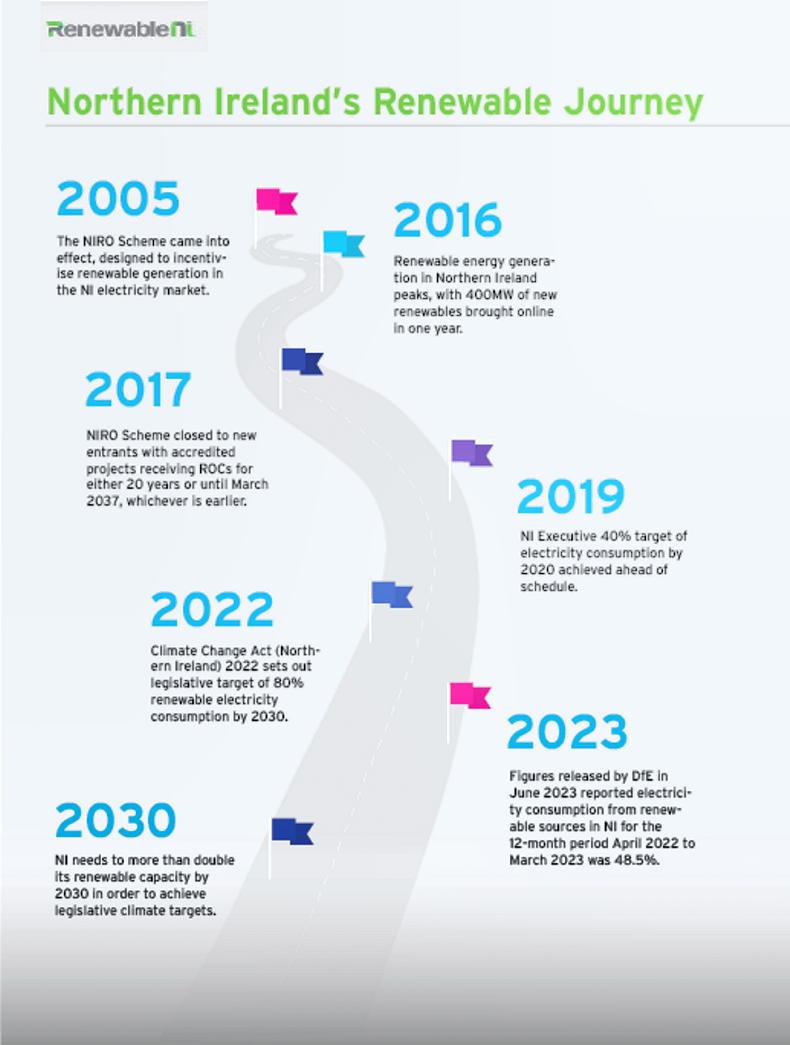
Northern Ireland renewable roadmap. \ RenewableNI
The lack of a functioning government in NI poses a substantial risk to support scheme delivery.
Although the Department for the Economy can advance scheme planning and structuring, concerns arise about implementation without a functioning Executive, RenewableNI states.
Top asks
To help NI regain momentum in renewable energy development, the report recommends the following key actions:
Launch a Northern Ireland specific renewable energy support scheme. Publish a detailed roadmap for a new support scheme, including detailed timelines and parameters.Reduce current planning decision timelines to a maximum of one year.Introduce a time limit for statutory consultee responses, with a ‘use it or lose it’ mechanism.Introduce third-party oversight of planning department performance against key metrics.Increase education of planning officers in renewable technologies.Adopt an anticipatory investment approach to grid infrastructure development.Allow grid connection application and planning application to run concurrently.Provide the Utility Regulator with the vires to consider environmental and climate priorities.Permit increased turbine height, as well as removal of 10x rotor diameter set back distance.The Ulster Farmers’ Union (UFU) says NI will struggle to meet its renewable electricity 2030 target without significant reform.
In a statement, UFU deputy president William Irvine highlighted their frustrations at the lack of government policy co-ordination.
He said NI farmers are part of the climate change solution, but they need supportive renewable policies in place to enable them to realise their potential – but this has yet to happen.
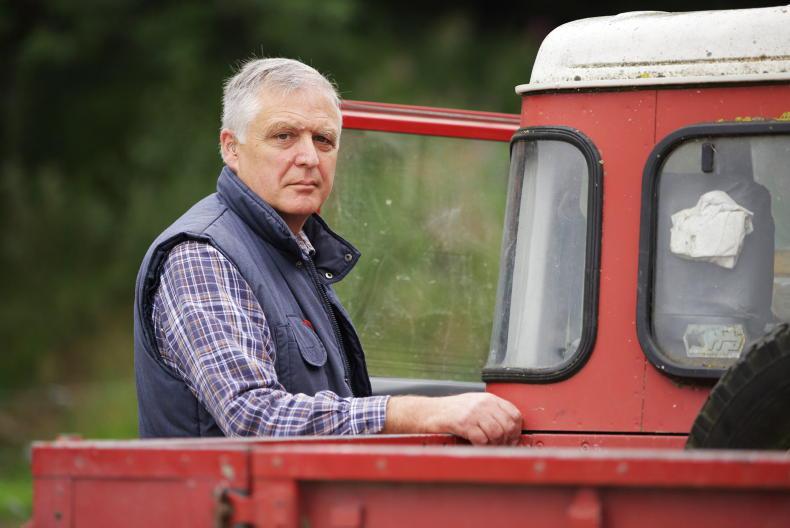
William Irvine, UFU deputy president.
William said that the revised ammonia protocol proposal is a huge worry for renewable development in NI, as it is likely to make it almost impossible for new anaerobic digestion plants in NI to get planning permission or obtain the relevant licences.
“Following the Department for the Economy consultation on design considerations for a renewable electricity support scheme for NI, the preferred option seems to be contracts for difference, but this would by-pass UFU members wishing to get involved in renewables.
“NI has the best wind conditions in northwest Europe, yet the land sector is being dismissed. We are missing massive opportunities that are right under our nose, and this is preventing us from realising our sustainability aspirations.
“A NI renewable electricity support scheme is vital to reinvigorate the market and reverse renewable development decline. It must be addressed urgently,” he concluded.
For many years, Northern Ireland’s (NI) energy policy was the envy of farmers in the Republic of Ireland (ROI).
The economic opportunities presented to farmers in NI over the decades led to the development of hundreds of farm-scale wind turbines, anaerobic digestion plants, hydro-turbines and biomass boilers.
However, it appears as though that momentum has ground to a halt, both in terms of farm-scale and large-scale commercial renewable projects.
From 2008 to 2018, NI’s wind and solar capacity typically showed double or triple-digit growth rates, with a Compound Annual Growth Rate (CAGR) of 20.13% for wind and 94.22% for solar.
Following the closure of the Northern Ireland Renewables Obligation scheme and the final projects, which availed of the scheme becoming operational in 2018, the growth rates have plummeted to a CAGR of 1.66% and 2.25% respectively.
In several years throughout this period, annual growth has been less than 1%.
Over the past 12 months alone, NI has added only around 30MW of new renewable energy capacity to the system. For context, ROI managed to connect more than 20 times this volume over the same 12-month period, connecting 688MW across 23 assets.
A new report by the industry body RenewableNI shows that NI will face challenges in attracting new investment and meeting its 80% renewable electricity target for 2030 without significant reforms.
The report not only highlights the reasons behind the stagnation of renewable development in NI, but also provides solutions to regain momentum.
What is needed?
According to system operators EirGrid and SONI, NI will need to develop 3,550 MW of renewable generation capacity by 2030 in order to deliver the target of 80% renewables.
The NI market has a known pipeline of 3,461MW of renewable projects, with projects ranging from the pre-planning stage to fully consented assets, which in theory could meet NI’s required demand.
However, by assuming current permitting and grid timelines, and being realistic with expectations, RenewableNI believes a best-case outcome will see 725MW of this pipeline begin generating by 2030, falling well short of the target.
Grid challenges
Grid connection costs and timelines are making renewable projects economically viable, according to the report. The lack of investment in grid infrastructure over the past decade has strained the current system in NI, which is a large part of the problem.

Little progress is being made on renewables in NI.
Furthermore, the need for planning permission before grid applications can be made only slows things down further.
For example, one stakeholder in Britain, who contributed to the report, said that they cannot understand why there has to be so much money spent on planning, studies, etc, before grid connection offer.
Planning challenges
Long wait times and a lack of decision transparency are having a substantial effect on the planning and development of renewable projects. Decision timelines range from six months to the current average of three years, exceeding legal targets.
Similar to ROI, inconsistencies arise across councils, with individual planners and councils making differing decisions on similar applications, with little oversight over these decisions.
Route to market
The lack of a support scheme leaves renewables in NI without a primary market pathway, making ROI and GB, with their government-backed support schemes, more appealing to investors.
The absence of a clear timeline for a new support scheme from the Department for the Economy hampers developers’ ability to plan future projects, evident in the declining investor interest in consented projects in NI, the report outlines.

Northern Ireland renewable roadmap. \ RenewableNI
The lack of a functioning government in NI poses a substantial risk to support scheme delivery.
Although the Department for the Economy can advance scheme planning and structuring, concerns arise about implementation without a functioning Executive, RenewableNI states.
Top asks
To help NI regain momentum in renewable energy development, the report recommends the following key actions:
Launch a Northern Ireland specific renewable energy support scheme. Publish a detailed roadmap for a new support scheme, including detailed timelines and parameters.Reduce current planning decision timelines to a maximum of one year.Introduce a time limit for statutory consultee responses, with a ‘use it or lose it’ mechanism.Introduce third-party oversight of planning department performance against key metrics.Increase education of planning officers in renewable technologies.Adopt an anticipatory investment approach to grid infrastructure development.Allow grid connection application and planning application to run concurrently.Provide the Utility Regulator with the vires to consider environmental and climate priorities.Permit increased turbine height, as well as removal of 10x rotor diameter set back distance.The Ulster Farmers’ Union (UFU) says NI will struggle to meet its renewable electricity 2030 target without significant reform.
In a statement, UFU deputy president William Irvine highlighted their frustrations at the lack of government policy co-ordination.
He said NI farmers are part of the climate change solution, but they need supportive renewable policies in place to enable them to realise their potential – but this has yet to happen.

William Irvine, UFU deputy president.
William said that the revised ammonia protocol proposal is a huge worry for renewable development in NI, as it is likely to make it almost impossible for new anaerobic digestion plants in NI to get planning permission or obtain the relevant licences.
“Following the Department for the Economy consultation on design considerations for a renewable electricity support scheme for NI, the preferred option seems to be contracts for difference, but this would by-pass UFU members wishing to get involved in renewables.
“NI has the best wind conditions in northwest Europe, yet the land sector is being dismissed. We are missing massive opportunities that are right under our nose, and this is preventing us from realising our sustainability aspirations.
“A NI renewable electricity support scheme is vital to reinvigorate the market and reverse renewable development decline. It must be addressed urgently,” he concluded.








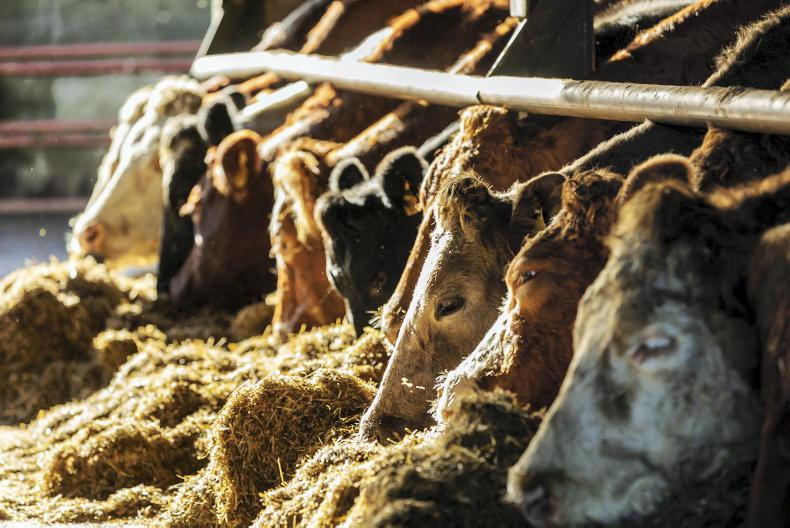

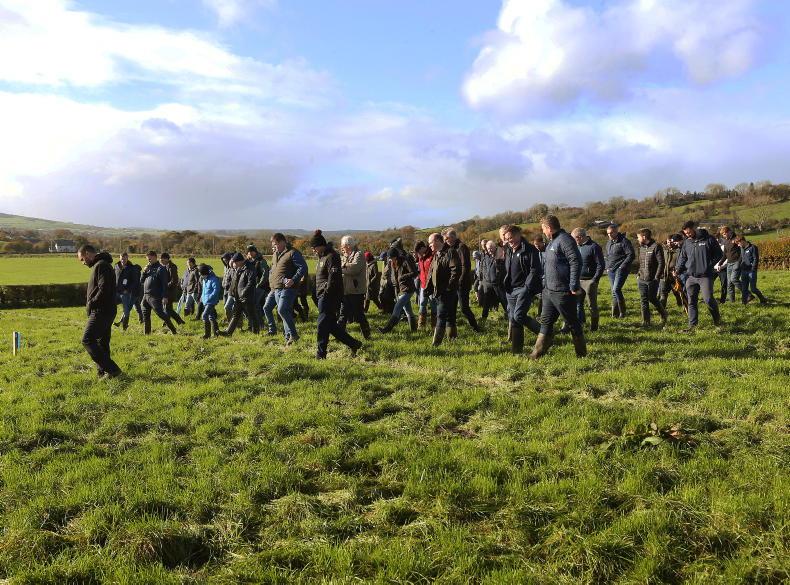


SHARING OPTIONS